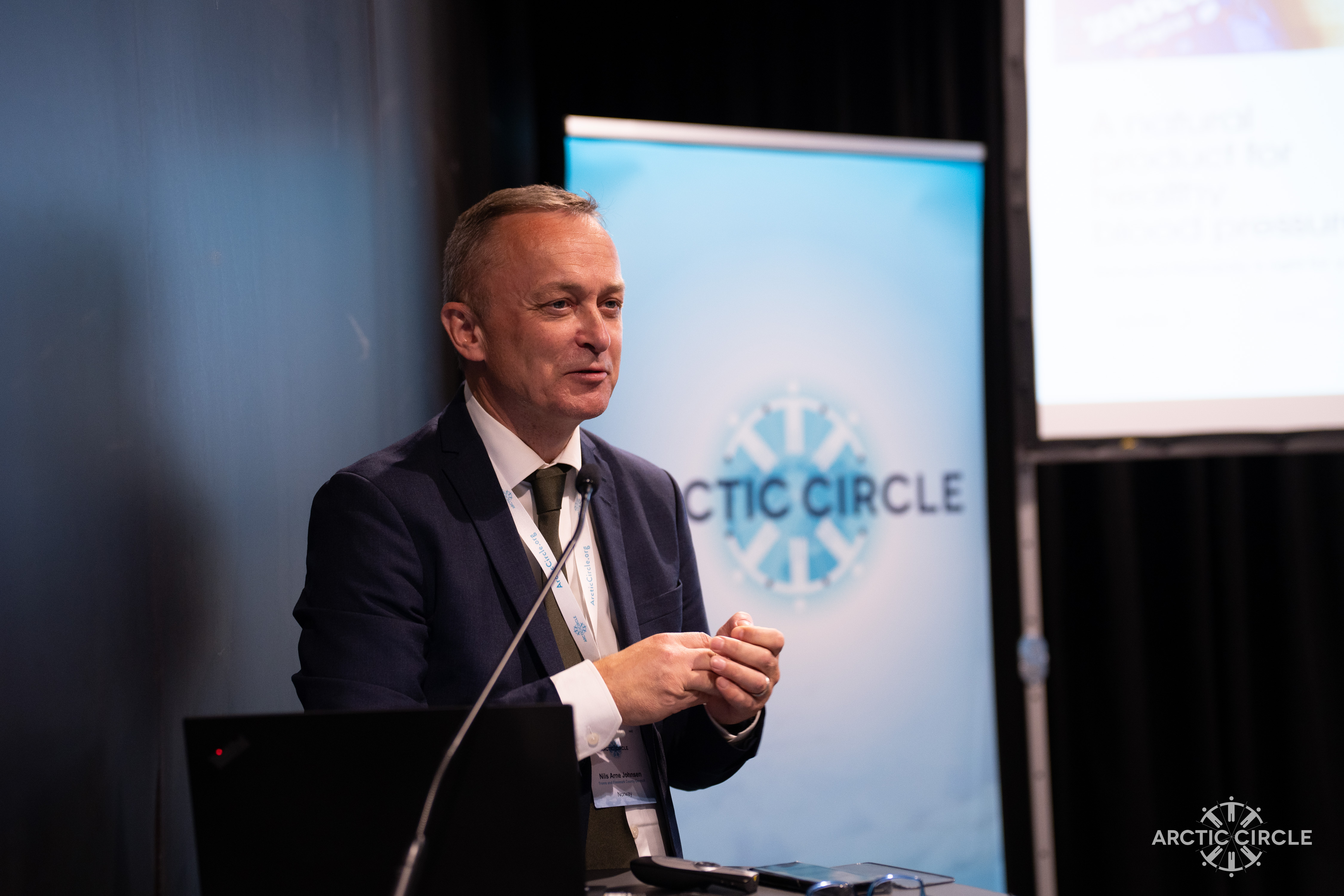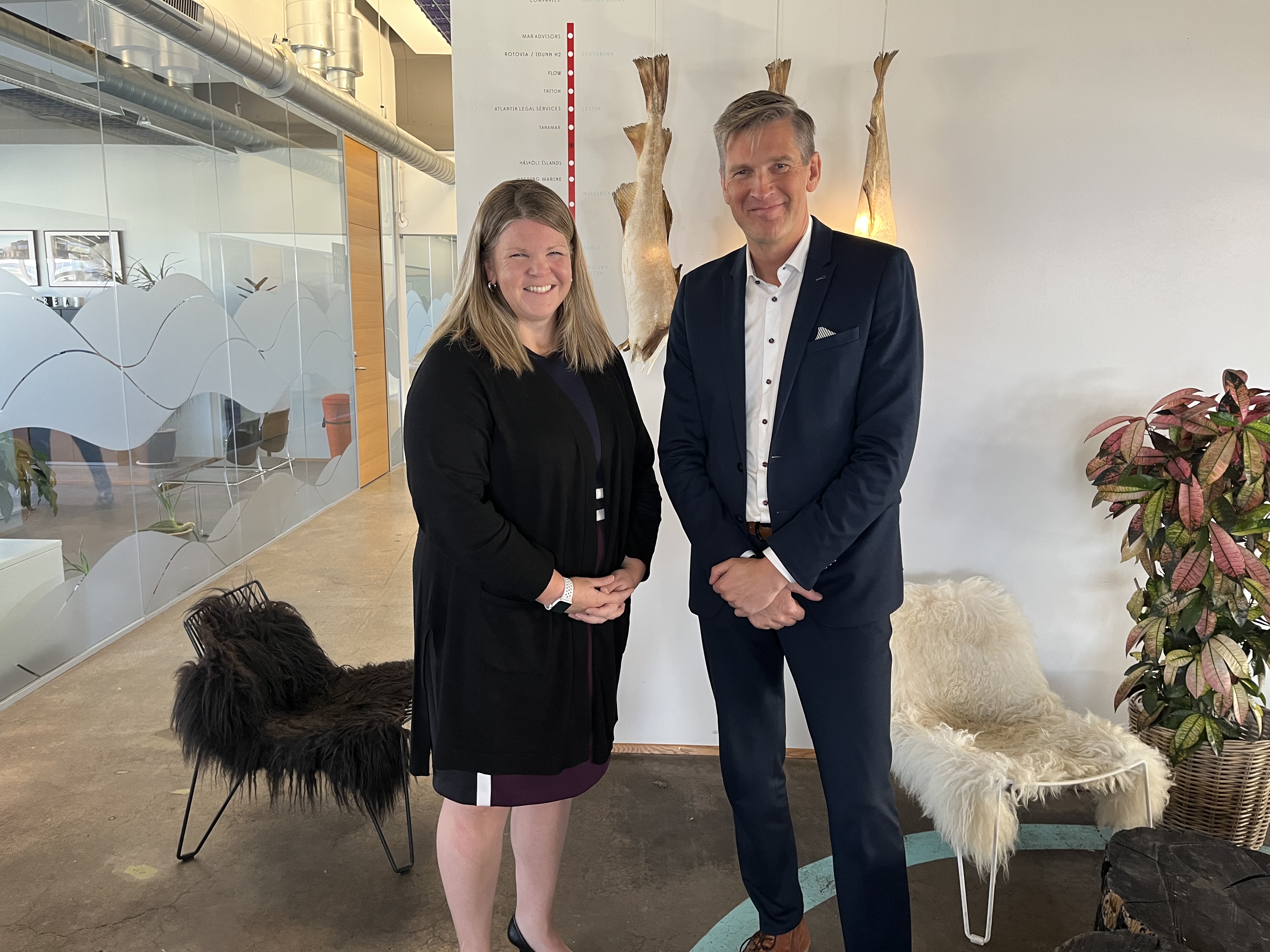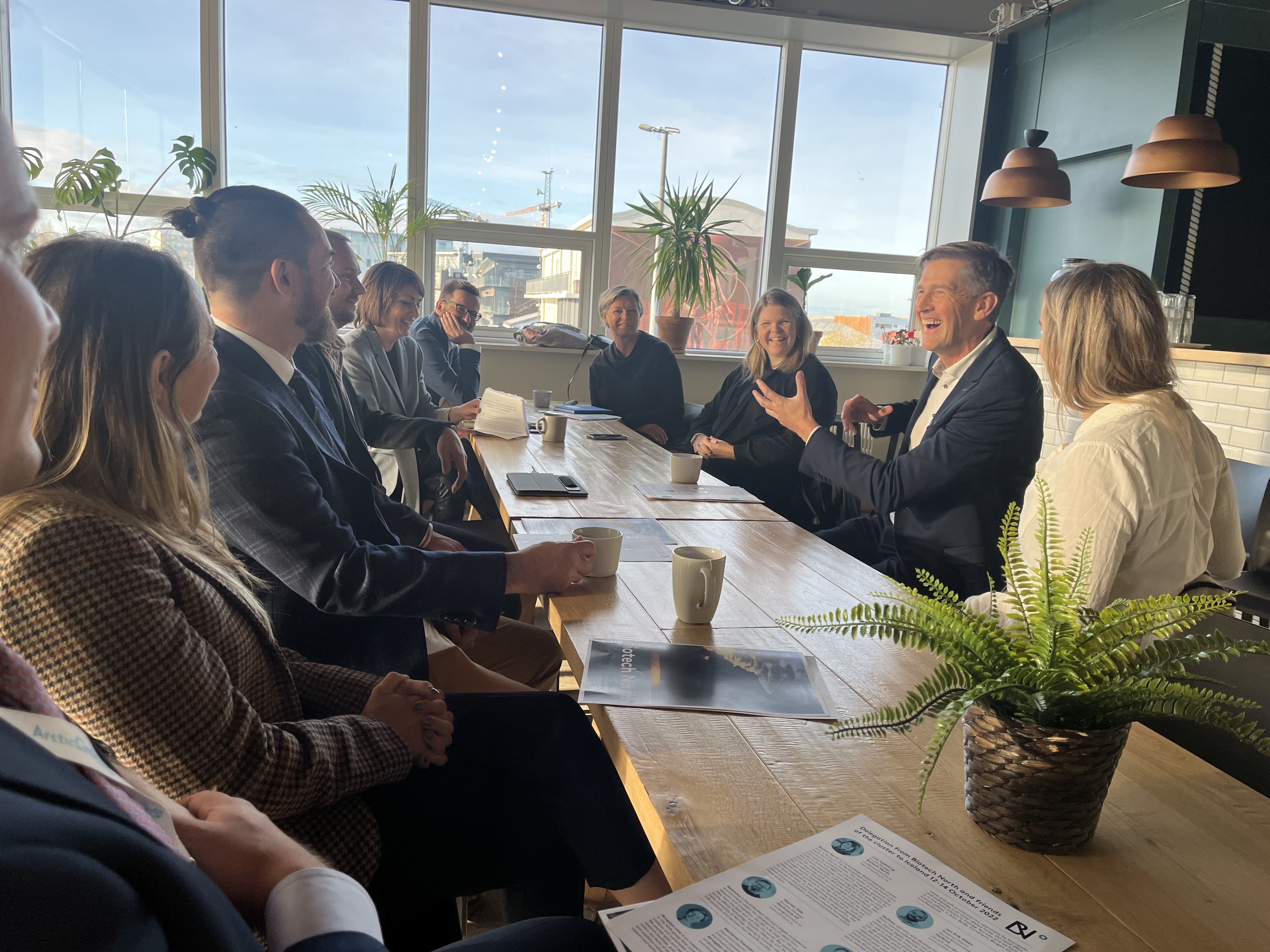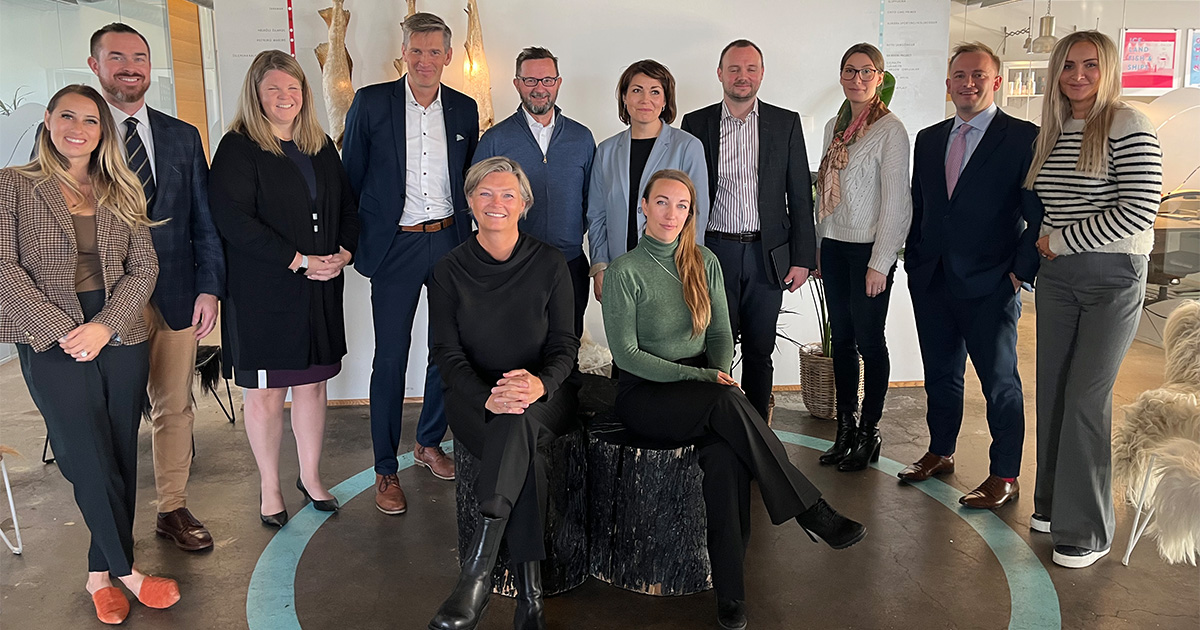Arctic Opportunities
It’s home to the world’s smallest and coldest major ocean.
Touching eight countries and spanning more than 5.4 million square miles, what happens in the Arctic Ocean matters to the entire world. It supplies fresh water for drinking, a habitat for many different species, major shipping lanes, and supports the livelihoods of millions of people living in northern communities. The Arctic is known for its pristine beauty, resources, and also its harsh environment, where innovation and Indigenous knowledge are at the foundation of every opportunity.
Some of the greatest opportunities in the Arctic today come from addressing its most urgent challenges. Warming at a rate estimated to be two to three times more quickly than the rest of the world, the Arctic Ocean is at risk. This comes with the potential for devastating impacts, and together, we have the responsibility and ability to address and mitigate these pressures.
 (Image credit: CA’s OSC)
(Image credit: CA’s OSC)
It’s with this focus that Canada’s Ocean Supercluster, the Iceland Ocean Cluster, Troms and Finnmark County Council and BioTech North Cluster from Norway, the Alaska Ocean Cluster as well as the New England Ocean Cluster have recently engaged in cold-water ocean cluster and ecosystem builder collaboration with a shared interest in working together. The aim is to help facilitate the collective listening, learning, collaboration, and innovation needed to help tackle some of the most significant impacts of climate change felt by those living in northern communities. Thin ice and severe weather conditions have not only impacted sea temperatures and aquatic ecosystems but also disrupted traditional access to hunting, fishing, and herding. Beyond food security, other focus areas must address sustainable and safe shipping, renewable energy, security, and coastal resiliency more broadly. Working closely with Indigenous Peoples and coastal communities is critical to not only defining these challenges and developing responsive solutions but also to strengthening startup ecosystems to support collaborative problem-solving and help create a more diverse, well-skilled future workforce.
The Role of the Blue Economy
These cold-water nations are amongst those worldwide who have committed to aggressive net zero targets to contribute to a healthier planet. But, without our ocean, we will not achieve those targets. Human activity generates more carbon emissions than any other source and continues to rise at alarming rates. The role of the blue economy is instrumental in the decarbonization of large-scale human marine activity, including shipping, fishing, and energy. Marine shipping, by way of example, moves approximately 90 percent of the world’s goods and, according to the International Maritime Organization, also generates three percent of carbon emissions in the world, having increased by ten percent from 2012 to 2018 alone. These are big challenges with big impacts on the Arctic in particular, where solutions will benefit all of humanity while also presenting significant opportunities for those who deliver them.
 (Image credit: CA’s OSC)
(Image credit: CA’s OSC)
Recently, the United Nations’ Sustainable Blue Economy Investment Forum saw governments, banks, and corporations gather at the UN Ocean Conference and commit to investing billions of dollars in the blue economy. A recent global report on the blue economy by Startup Genome finds, “There is undoubtedly growing global interest in developing technologies that restore marine health, make more responsible use of ocean resources, and fight climate change. However, in the startup world, there is currently a huge amount of untapped potential.” The development of transformative solutions in the Arctic is where some of the most significant opportunities for innovation and investment exist for innovators, industry, and Indigenous communities and the basis from which the cold-water ocean clusters and ecosystem builders have begun their collaborative effort—each bringing its own strengths to the table, where:
- Iceland Ocean Cluster’s mission is to create value by increasing collaboration in the blue economy with an emphasis on reducing waste in the global fish value chain; 100% fish!
- Troms and Finnmark County Council is a regional government agency that facilitates the Norwegian Arctic ecosystem for blue innovation in food products, pharmaceuticals, and biotechnology.
- New England Ocean Cluster creates value in the Blue Economy by discovering new opportunities for sustainable growth through connecting purpose-driven people and organizations.
- Biotech North is a Norwegian cross-sectoral cluster with a specialty in blue biotechnology and bioeconomy, contributing to a sustainable life science industry, green transition, and circular economy.
- Alaska Ocean Cluster specializes in advancing the sustainability and profitability of Alaska’s wild capture fisheries and mariculture sector.
- Canada’s Ocean Supercluster invests in transformative ocean technology solutions across sectors with a focus on international market growth.
First Coordinated Efforts
The cold-water clusters and ecosystem builders came together in person for the first time in Reykjavik, Iceland, for information-sharing and to explore further opportunities for collaboration. The conversation began at the Iceland Ocean Cluster House, where they discussed how to work together to benefit respective memberships, countries, and the global blue economy more broadly. The focus was on the importance of learning from one another to solve common challenges in the Arctic, adding value through facilitating connections and coordinating efforts for the greatest impact. While at the Arctic Circle Assembly, the clusters and ecosystem builders delivered a focused workshop facilitating cross-Atlantic collaboration and capacity, expanding on these discussions with participants from northern countries interested in capacity building in the global blue economy.
Three key themes emerged from this discussion: 1) Building greater baseline awareness and understanding of the cross-Atlantic regions and clusters is critical to forming productive partnerships—the differences, gaps, needs, and market strengths; 2) Shared commitment to collaboration is necessary to maximize impact and arrive at solutions more quickly—creating increased opportunities for industry, government, and the research community to work together and share knowledge; 3) Cold-water clusters are a catalyst from which the opportunity to do more together exists—including solving shared challenges such as emissions reduction and elimination of waste, development of the highest quality of ocean products and performance, and engaging Indigenous and coastal communities as active partners.
Challenged further, participants were asked to consider what would the dream scenario be for problem-solving and innovation in the Arctic. The response? A strong, cohesive cold-water partnership and brand dedicated to delivering sustainable outcomes and economic opportunities in the north while working with local communities. The opportunity? To do more together.
(Image credit: CA’s OSC)
Do more, together
Increasingly, ocean industries are embracing technological advancements, and this is a path that can not only fundamentally change the way we do business in the Arctic Ocean but also generate cross-regional cooperation, strong Indigenous partnerships, engagement with communities, sustainable economic growth, and new jobs in the process. This cold-water ocean cluster and ecosystem builder collaboration is an inclusive one and, in its early days, was established in the spirit of doing more together and doing good for our planet. Other cold-water ocean clusters are welcome and encouraged to join this effort as we consider what’s next.





